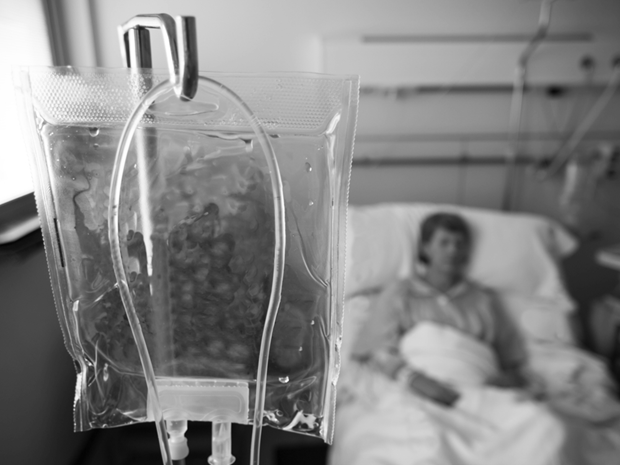A nurse is admitting a client to the emergency department after a gunshot wound to the abdomen.
Which of the following actions should the nurse take to help prevent the onset of acute kidney failure?
Administer IV fluids to the client.
Insert a urinary catheter.
Prepare the client for an intravenous pyelogram.
Initiate beta-blocker therapy.
The Correct Answer is A

Administering IV fluids can help maintain blood flow to the kidneys and prevent acute kidney failure.
Choice B is incorrect because inserting a urinary catheter does not prevent acute kidney failure.
Choice C is incorrect because an intravenous pyelogram is a diagnostic test and does not prevent acute kidney failure.
Choice D is incorrect because beta-blocker therapy is not used to prevent acute kidney failure.
Nursing Test Bank
Naxlex Comprehensive Predictor Exams
Related Questions
Correct Answer is D
Explanation

A change in behavior such as agitation and restlessness in a client with a traumatic brain injury can be a sign of increased intracranial pressure.
The nurse should first assess the client’s blood pressure as an increase in blood pressure can be an indicator of increased intracranial pressure.
Motor responses are not the first assessment that should be performed.
Blood glucose is not the first assessment that should be performed.
Urinary output is not the first assessment that should be performed.
Correct Answer is D
Explanation

One of the lifestyle changes that doctors recommend for managing symptoms of gastroesophageal reflux disease (GERD) is elevating the head during sleep by placing a foam wedge or extra pillows under the head and upper back to incline the body and raising the head off the bed 6 to 8 inches.
Choice A: “Increase your caloric intake by 250 calories per day” is not an answer because it is not mentioned as a self-management strategy for GERD in my sources.
Choice B: “Lie down for 30 minutes after each meal” is not an answer because it is not mentioned as a self-management strategy for GERD in my sources.
Choice C: “Eat a light meal 1 hour before bedtime” is not an answer because it is not mentioned
Whether you are a student looking to ace your exams or a practicing nurse seeking to enhance your expertise , our nursing education contents will empower you with the confidence and competence to make a difference in the lives of patients and become a respected leader in the healthcare field.
Visit Naxlex, invest in your future and unlock endless possibilities with our unparalleled nursing education contents today
Report Wrong Answer on the Current Question
Do you disagree with the answer? If yes, what is your expected answer? Explain.
Kindly be descriptive with the issue you are facing.
